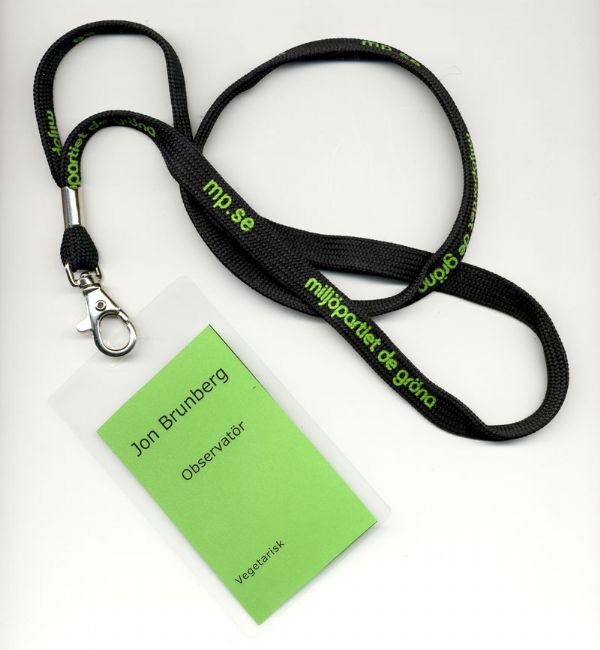
UWC News
DEMOCRACY IS A COMPLEX STORY
Posted: 2004-07-01 | by: Jon Brunberg
A report from The Swedish Green Party´s annual congress in Ronneby, Sweden on May 22 It is not everyday you get to visit a party congress from inside as a lecturer and observer, especially when you are not connected to the media nor a member of that same party. This time it is the Swedish Green Party´s annual congress held in the small town of Ronneby in the very south of the country. I wear a green visitors pass around my neck while I am at the congress. It says "Observer, vegetarian". That´s me. The reason for me being there was because we were invited to hold a lecture about the Utopian World Championship at the congress, as a part of a seminar programme that was not connected to the ongoing political work itself. Henrik Wachtmeister, a local politician for the Green Party in the county of Blekinge where Ronneby is located and the organiser of the seminars, told us that he felt that visions and utopias was definitely needed at the conference. He found the work as a politician in the local parliament as being too much about economy, budgets and not enough about visions, about the future for the region. The politicians of the Greens may be seen as odd figures in the political world of collar and tie, but the party has now established a firm base of voters in Sweden that have given them seats in local parliaments as well as the national government where they have real possibilities to create a change. Henrik is himself is a person that experiments with social structures in his everyday life. He runs a store for organic foods and products in the countryside that is unguarded most of the time. Shoppers simply take what they want from the shelves and put money in boxes, a model for shopping totally based on trust, and apparently working fine with a constantly growing customer base. Anyway, I was for the first time getting an insight in the complex praxis of democracy. Even if the Green Party may be a bit different from other political parties in Sweden they basically follow the same procedures when it comes to decision-making. Proposals, or "motions" as they are called, are sent to coordinators months before the congress. The coordinators redirect the proposals to the party leadership and working groups around the country for discussion and evaluation. These proposals are then further discussed in working groups at the congress before finally voted on in the big congress hall. The discussions and voting takes three days and it sets the party´s policies for the coming year. This year the EU membership is a big issue. The question whether the party should work towards Sweden leaving the community or not is a hot potato here and the main interest for the media that covers the events. I sit trough the round of discussions and voting regarding issues on democracy, a theme I find suitable concerning my task here. One proposal that is thoroughly discussed suggests that all Swedish companies should be own by Swedish citizens only. Party members enter the scene and have their say about the proposal in a maximum time of two minutes each. The discussion around this particular issue is quite storming and no wonder concerning its radicality. It is subsequently turn down by a grand majority but what interests me is that this proposal could survive the process and travel all the way to the conference and finally be discussed and voted on, albeit its radical and somewhat anachronistic content that seemed to belong more to the revolutionary sixties than the current political climate marked by discussions about the effects of globalisations. Does this means that western representative democracy works? Well, the question I ask myself is if the system is too complex for ordinary people to understand, less to get themselves involved with. The party based system is so intricate that most people including myself don´t know how it works in praxis. The feeling of being excluded from the process is of course not good for democracy at all and it is perhaps no wonder that we talk about a crisis for the western democracy and contempt for politicians among ordinary people. The good thing is that we actually have a good democratic base to shape the political system into a form that is more suitable for the 21st century. I hope that the Utopian World Championship one day can be a functioning tool for politicians to find new ways of thinking and I am therefore happy that we were invited to the conference, that the interest for development is present. Albeit the politicians for whom I held the lecture was almost falling asleep when I talked about art, they definitively revived when I started to read from a couple of proposals from the 1st Utopian W.C., among others Neil Coulters essay "Decimal Democracy". The examples started a long discussion and I suddenly got the feeling that these people, how entangled in everyday politics they may be, have the will to develop the way we make decisions in this world. LINKS Neil Coulters essay "Decimal Democracy"